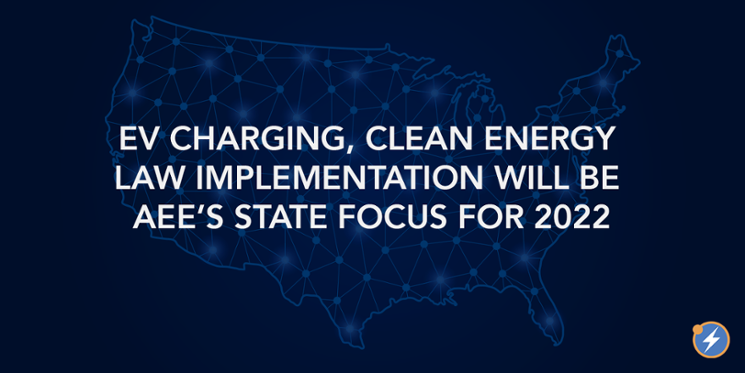
When Californians send their kids to school, we want them to be safe and cared for, but the bright yellow buses we rely on every day are surprise offenders when it comes to the air students breathe. Even though students only spend a few hours each week on school buses, kids’ lungs are particularly susceptible to the asthma-causing particle pollutants that get trapped inside these vehicles, making those rides more harmful than they might appear. Fortunately, a safe alternative is available with electric school buses.
Read More
Topics:
Guest Post,
California Engagement,
Advanced Transportation,
California

As the West deals with a record-setting heat wave that is fueling catastrophic droughts and wildfires and is testing the limits of America's aging power grid, our team at AEE is focused on how we can improve grid resilience and connect more clean energy by establishing a regional transmission organization (RTO) to operate the power grid for Western states. Now, we can say with certainty just what the West would gain in savings, jobs, and economic growth - and it’s a lot.
Read More
Topics:
Wholesale Markets,
Arizona,
Economic Impact,
California,
Nevada,
Montana,
Utah,
Wyoming,
Idaho,
Western RTO,
Oregon,
Washington,
New Mexico

With 2022 more than halfway through, AEE returns with the latest edition of its biennial top utility regulatory trends roundup. Utility regulatory commissions across the country have been off to a busy start, navigating supply chain hurdles, inflationary pressures, extreme weather events, and the accelerated adoption of clean energy technologies. With PowerSuite, AEE’s policy tracking platform, we cut through the noise to provide insights on the trends shaping utility regulation this year and in years to come.
Note: some links in this post reference PUC filings and other documents in AEE's software platform, PowerSuite. Click here and sign up for a free trial. PowerSuite – policy tracking by policy professionals.
Read More
Topics:
State Policy,
Utility,
Regulatory,
Advanced Transportation,
Pennsylvania,
Decision Maker Engagement,
California,
Nevada,
North Dakota,
Vermont,
Oregon,
Minnesota,
North Carolina,
South Carolina,
New York,
Michigan

Since the start of this year’s legislative sessions, Advanced Energy Economy has been tracking energy legislation across all 50 states, the District of Columbia, and the U.S. Congress through its online PowerSuite platform. PowerSuite provides policy tracking by policy professionals. In the process, we have identified several trends in how states are contemplating the future of their energy, transportation, and building sectors. The bills described in this post, which range from simply introduced to fully signed into law, by no means represent every bill in the country filed this year, but are rather indicative of the attention being devoted to each topic by lawmakers. What follows represents the top 10 state energy legislative issues of 2022.
Read More
Topics:
State Policy,
Advanced Transportation,
Virginia,
Arizona,
Pennsylvania,
Indiana,
California,
Massachusetts,
Maine,
Nebraska,
Tennessee,
Maryland,
Wyoming,
Connecticut,
New Jersey,
West Virginia,
Idaho,
Washington,
Hawaii,
Louisiana,
Minnesota,
New Hampshire,
South Dakota,
New York,
New Mexico,
Florida,
Illinois

When it comes to energy policy, all eyes have been on Washington, D.C., over the past year. Meanwhile, with far less attention, the states continue to lead the way in our energy transition. Between figuring out how to put to work funds from last year’s federal infrastructure bill, carrying out their own mandates for clean energy, and prepping for an electric transportation future, states will remain the primary venue for building an advanced energy economy in 2022. Here are some of the trends AEE will be watching – and engaging in – this year.
Read More
Topics:
State Policy,
Advanced Transportation,
Virginia,
California,
New York,
Federal Priorities




